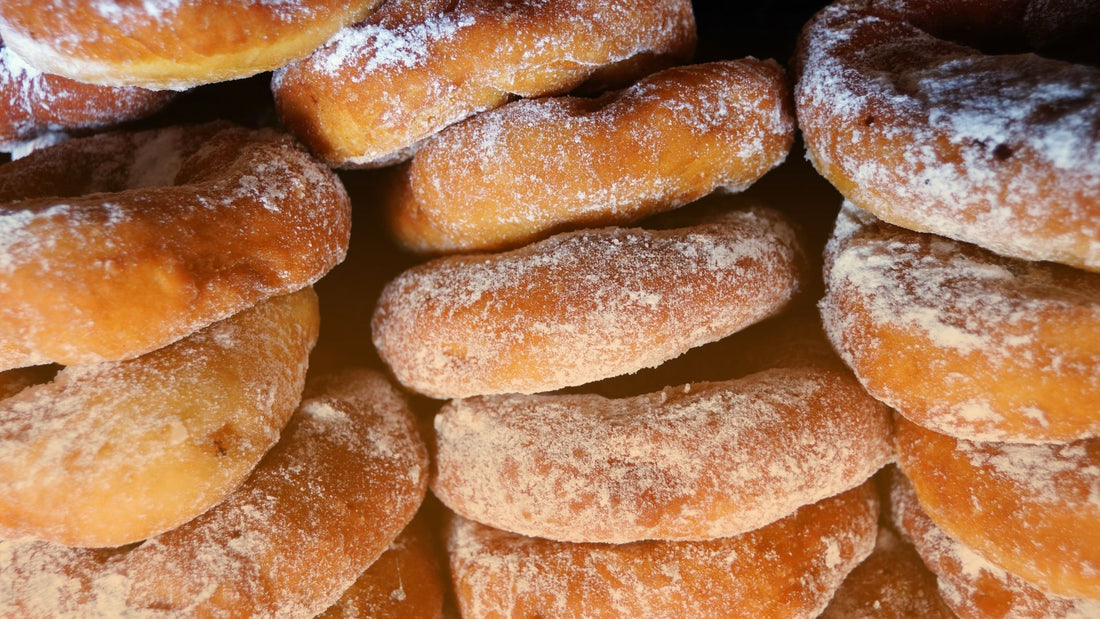Some Energy Drinks And Coffee Beverages May Contain More Sugar Than Glazed Doughnuts
Anthony Gucciardi
We tend to associate doughnuts with high sugar intake, perhaps because of the rich taste that we nearly unanimously enjoy (Postmates actually conducted a poll and found 96% of Americans like doughnuts!).
But health experts have pointed out that while doughnuts may be a wide-ranging symbol for sugar and indulgence, they report that a number of other items actually contain more sugar than a glazed donut -- and based on the numbers, this includes some popular energy drinks and coffee beverages.
As Lauren Smith, MA writes in the GoodRX article '8 Surprising Foods with More Sugar Than a Glazed Donut' reviewed by Preeti Parikh, MD:
"A glazed yeasted donut has 10 grams of sugar—you know, that thing most Americans are already eating way too much of already...There’s nothing wrong with an occasional treat, but the problem is that our main source of sugar comes not from [doughnuts], but from sneaky sources of sugar that are added to everyday processed and prepared foods, like soda and breakfast cereal."
According to Smith, the glazed doughnut comes in at 10 grams of sugar. A single teaspoon of sugar is equal to about 4 grams, with the average American (including adults, children, and teenagers in the average) taking in about 17 teaspoons of added sugars per day as reported by Harvard.
Energy Drinks & Coffee With More Sugar Than Half Dozen Glazed Doughnuts?
It's easy to exceed the daily recommended sugar intake, especially when eating out or even eating reasonable portions of certain foods. But 'drinking your sugar' is one of the least-suspected ways we might be going past our ideal sugar intake to be aware of.
Eat This, Not That has compiled a list of energy drinks and their sugar content, listing extremely popular energy drinks as high as 63 grams of sugar per can. That's more than 6x as much sugar as GoodRx says a glaxed doughnut contains.
In other words, you may be consuming more sugar than a half-dozen glazed doughnuts if you were to consume an energy drink with 64 grams of sugar in it.
That's also not including high-fructose corn syrup and artificial flavorings, colorings, and other ingredients or additives you may want to avoid. Popular coffee beverages may also be loaded with sugars, with well-known options coming in at 54 grams to a reported 80 grams -- the latter being equivalent to around 16 teaspoons of sugar.
Andy Carven on Medium puts this into context by breaking down some comparisons:
- "Recommended daily amount of sugar — 30g
- A slice of cheesecake — 20g
- A normal 51g mars bar — 31g
- A 330ml can of coke — 35g"
As more health-conscious people review the ingredients and food labels of their favorite products and choose items that align with their values, we continue to see a positive shift in the trajectory of eliminating unwanted ingredients and adjusting the content of existing staples.
The purpose of this article is not to bash the brands that create energy drinks and coffee products that contain amounts of sugar that health experts like those referenced in this article consider high. It is simply to increase awareness over the potential liquid sugar intake you might be taking in on a daily basis, and to inspire clear review of label ingredients and sugar content of every product you use.
Additional Sources / Further Reading:
NHS
Eating Well
Healthline
Cleveland Clinic Health Essentials
Photo Credit: by Khairul Onggon
100% human-created content. Professionally reviewed for quality and information content.



